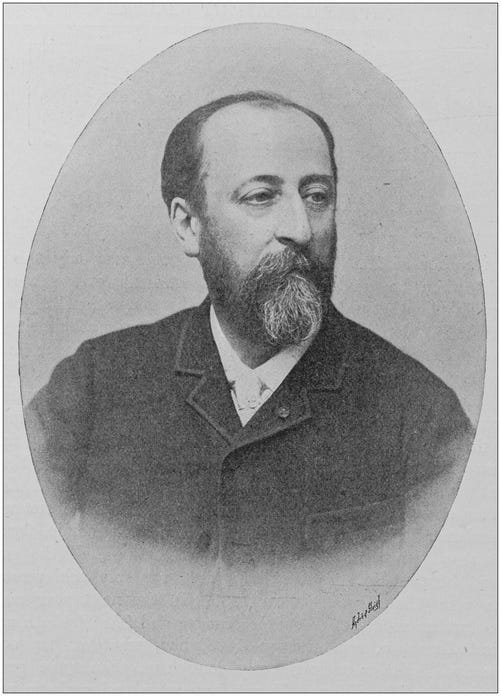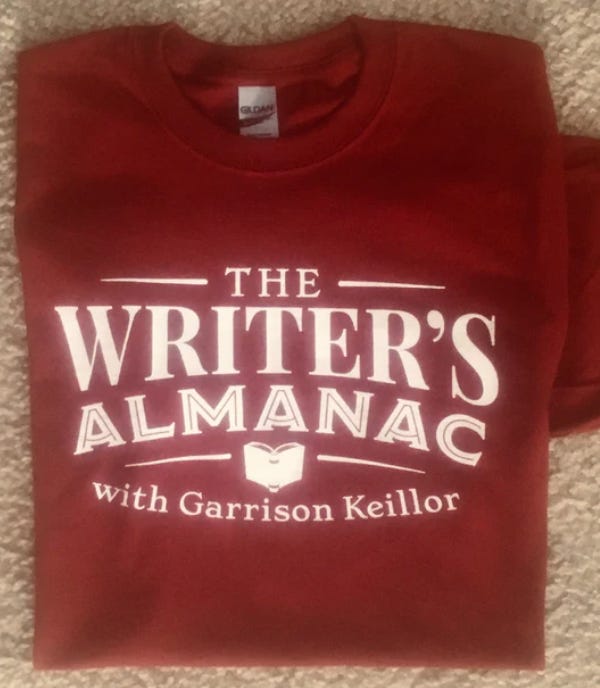The Writer's Almanac from Monday, October 9, 2017
“Six Inches” by Jeff Coomer from A Potentially Quite Remarkable Thursday. © Last Leaf Press, 2015.
ORIGINAL TEXT AND AUDIO - 2017
It's the birthday of Australian writer Jill Ker Conway, born in Hillston, New South Wales, Australia (1934). Her father was a sheep rancher, her mother a nurse, and Conway and her brothers were brought up in almost total isolation on Coorain, their 32,000-acre tract of land. By age seven, Conway already had become one of her father's main station hands. With her two brothers away at boarding school, she checked fences, prodded sheep from one paddock to another. Jill was educated at the all-female Abbotsleigh School and the University of Sydney, where she took an honors degree in history. She then spent ten years as the president of Smith College, the first woman to hold that position. She is the author of The Road from Coorain (1989), A Woman's Education (2001) and other books.
She said: "You never know what you'll want to write until it starts writing itself in your head."
In 1888 on this day, the Washington Monument was opened to the public. In 1848, at a Fourth of July ceremony, the cornerstone of the monument was laid. Lack of funds and continued interruptions delayed completion until its completion and dedication on February 21, 1885. The 555-foot structure opened officially to the public on October 9, 1888. By the day of the grand opening, the monument was outfitted with a steam-powered elevator that took 10 or 12 minutes for the trip up and down. At the time, it was the tallest building in the world. In the first nine months, more than 600,000 people visited, and by the turn of the century, more than 1.5 million had come.
It's the birthday of the South African journalist and crime writer James Howe McClure, born in 1939 in Johannesburg. In South Africa, he worked as a crime reporter and photographer.
One night, he was doodling, letting his mind wander, and he wrote a sentence: "For an undertaker, George Abbott was a sad man." The next weekend, he put some scratch paper in the typewriter and he typed that sentence, and then he kept typing and didn't stop for exactly two weeks, when he got to the words "The End." The novel he wrote, The Steam Pig, was published in 1971. Every year, he set aside two weeks for solid writing.
He wrote seven more crime novels as part of the Kramer and Zondi series, a series set in South Africa, which features two detectives — one Afrikaner and one Zulu. McClure quit working at the newspaper in order to write full time. Then he decided to write two nonfiction books focusing on police divisions in tough places — Liverpool and San Diego. For these books, he spent many months researching. He hung out with cops, observed them, and conducted interviews. He realized how much he missed being around people now that he was a professional writer, so he went back to being a journalist at the Oxford Times.
James Howe McClure said: "I long, long, long ago thought the finest thing to be is an entertainer, with tons of funny things to say. If people find lots more in my work, that's great, but if they just read and have a good laugh, that's fine for me."
It's the birthday of composer Camille Saint-Saens, born in Paris (1835). He was a child prodigy, with perfect pitch and a fantastic memory. He learned the piano and organ, and played the music of Beethoven, Bach and Mozart in recitals. He composed nice waltzes and gallops by the age of five, and wrote his first symphony at sixteen. His first famous opera was Samson and Dalila (1877). He wrote lots of other operas too, but they were less well-known outside of France. He was always surprised that the greater public gave him such high praise, yet constantly wanted to hear Samson and Dalila and ignored his other work. Over the course of his lifetime he composed more than 300 pieces, including thirteen operas, and he was the first major composer to write specifically for the cinema. He toured frequently, conducting his oratorios and premiering his piano concertos all over Europe and the United States, sometimes accompanied only by his servant, Gabriel, and his pet dogs.
Saint-Saens said, "I like good company, but I like hard work still better."
Be well, do good work, and keep in touch.®
Support The Writer’s Almanac with the purchase of our t-shirt - CLICK HERE






What would we do without these scenarios that Garrison drops on our mornings, or later as permitted? None the less we are more enlightened with stories in our cities near and far. Thanks to Mr. Keillor. Are these reports or stories alike or afar? Does the Mason-Dixon line still exist? Is it electronic now, or does it connect the only links we follow.....the ones that reinforce our on-keys and off-keys, and once we're off, who knows they are.
Keep up the pied stories, Mr. K. All our diets need pie.
Loved McClure’s novels and regret that he didn’t carry these stories on into post apartheid South Africa as they would have provided interesting insights into the new South Africa